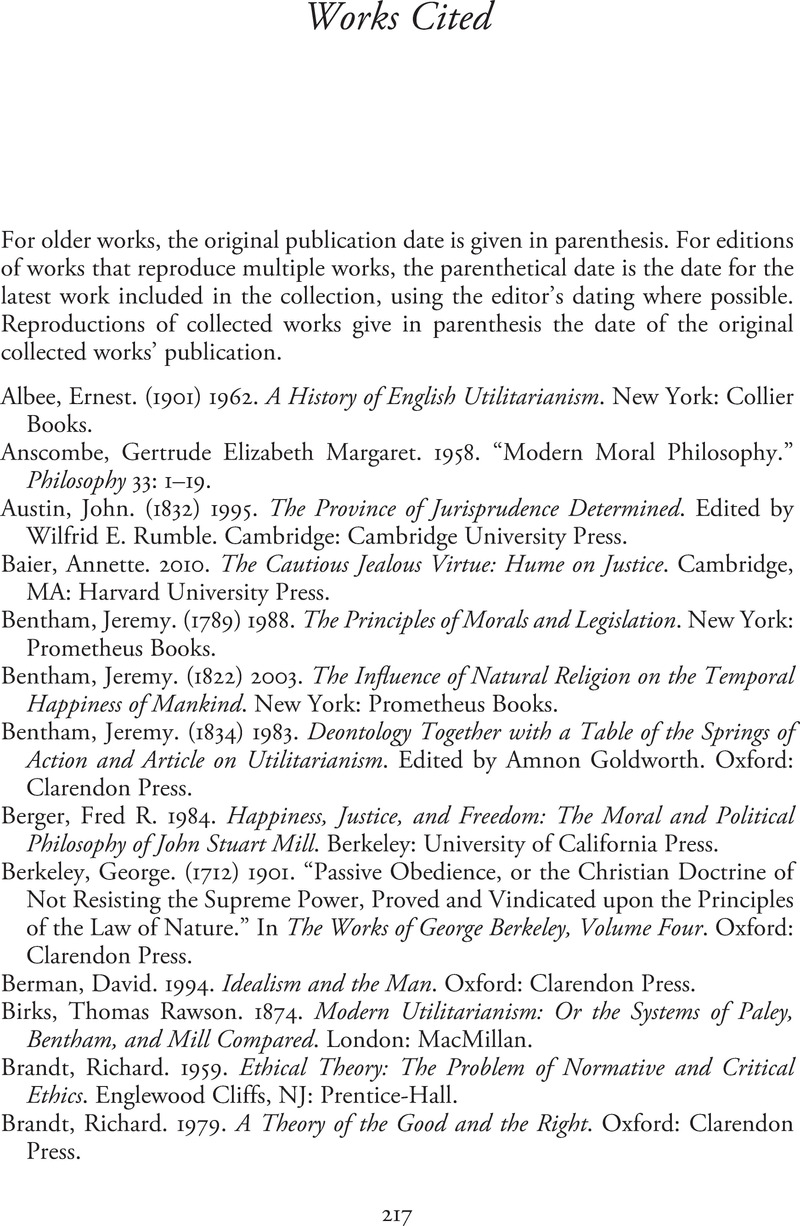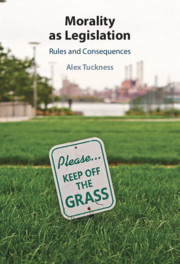Book contents
- Morality as Legislation
- Morality as Legislation
- Copyright page
- Dedication
- Contents
- Acknowledgments
- Abbreviations with Method of Citation
- Introduction
- Part I The Emergence of the Rule-Consequentialist Paradox
- Part II Contemporary Approaches to the Rule-Consequentialist Paradox
- Works Cited
- Index
- References
Works Cited
Published online by Cambridge University Press: 29 July 2021
- Morality as Legislation
- Morality as Legislation
- Copyright page
- Dedication
- Contents
- Acknowledgments
- Abbreviations with Method of Citation
- Introduction
- Part I The Emergence of the Rule-Consequentialist Paradox
- Part II Contemporary Approaches to the Rule-Consequentialist Paradox
- Works Cited
- Index
- References
Summary

- Type
- Chapter
- Information
- Morality as LegislationRules and Consequences, pp. 217 - 225Publisher: Cambridge University PressPrint publication year: 2021



